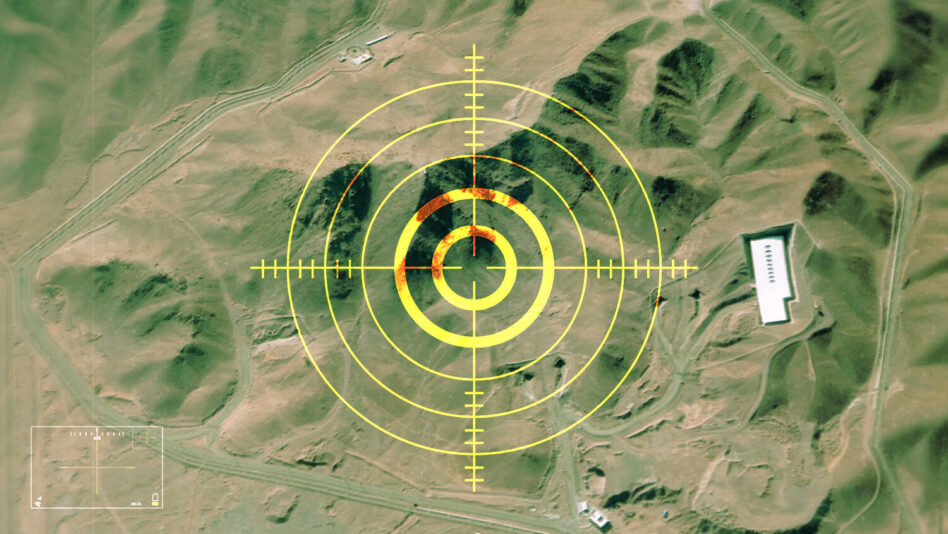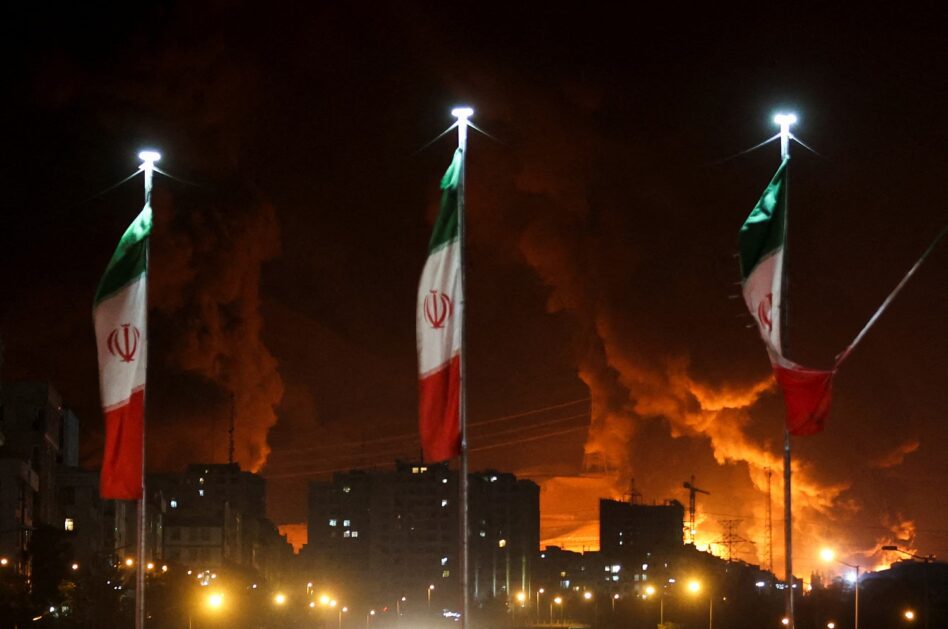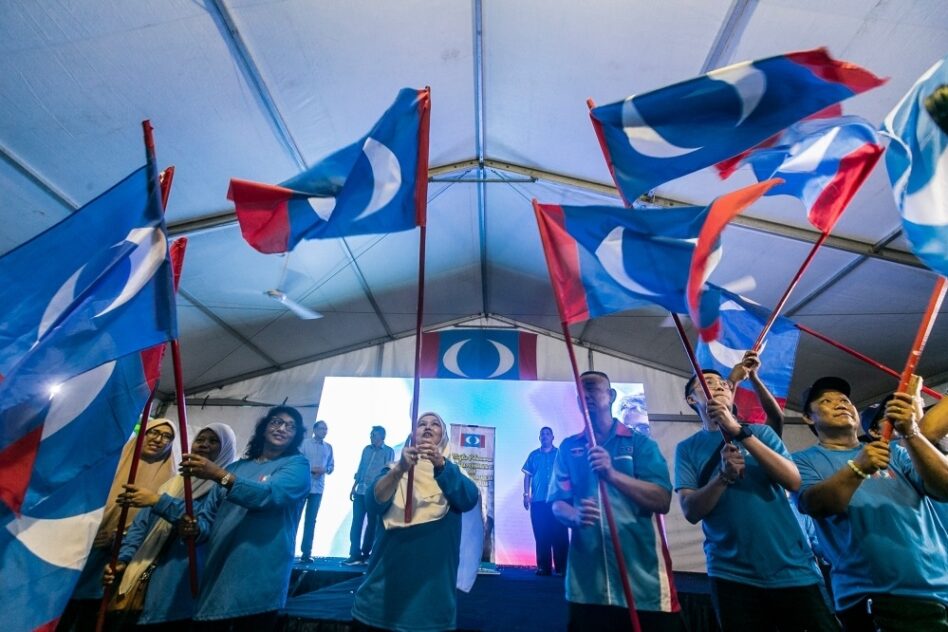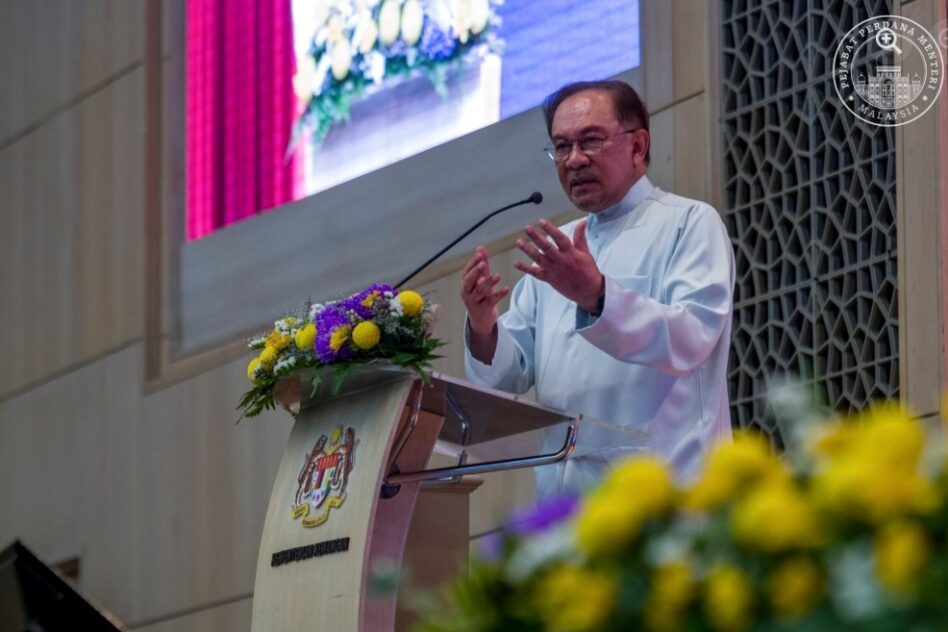THE buying power of the ringgit continues to shrink as the cost-of-living crisis bites.
Taking a further chunk out of the commoner’s already diminished buying power is the recently implemented price hike on liquefied gas.
This is the loud and angry contention from opposition politicians and its supporters.
According to The Star, all eateries, including hawker stalls, have been barred from using household subsidised gas cylinder retrospectively beginning May 1.
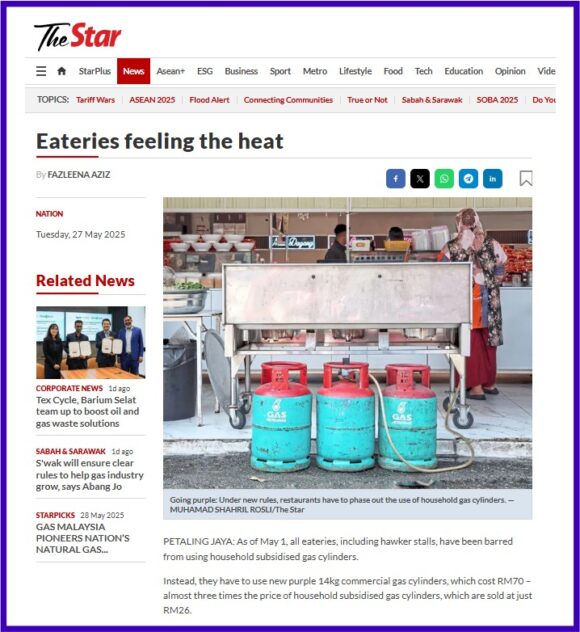
Instead, they have to use the new purple 14kg commercial gas cylinders which cost RM70 – almost three times the price of household subsidised gas cylinders which are sold at just RM26.
Industry players are also required to apply for a yearly permit if they want to have more than three such cylinders.
The Domestic Trade and Cost of Living Ministry is now cracking down to ensure that the food and beverage industry complies.
This news has huge ramifications for ordinary Malaysians and was quickly pounced upon by the opposition, starting with PAS information chief Fadli Shaari who accused the Madani government of “robbing the rakyat”.
The Pasir Mas MP claimed that such move will cripple the F&B (food & beverage) industry which surely is unable to absorb such a price hike.
The 44-year-old lawmaker further argued that at the end of the day, ordinary Malaysians are bound to shoulder the burden as the price increase is passed onto the end consumer.
This sentiment was also echoed in a post on X by Naratif Rakyat (@NaratifRakyat) which is said to be the account belonging to former Barisan Nasional (BN) strategic communication deputy director Datuk Eric See-To a.k.a. Lim Sian See.
Media The Star melapor bahawa mulai 1 Mei, semua kedai makan termasuk warung dan gerai tepi jalan tidak lagi dibenarkan guna tong gas bersubsidi RM26.
Sebaliknya, mereka diwajibkan guna tong gas komersial 14kg berwarna ungu berharga RM70 – hampir tiga kali ganda lebih mahal. pic.twitter.com/aUzlHdbZVG
— Naratif Rakyat 🇲🇾 (@NaratifRakyat) May 28, 2025
Quoting an unnamed coffee shop association president, the poster claimed that a simple bowl of noodles could see a RM1 rise in price due to this move.
It was claimed that gas subsidies amounted to RM3.4 billion but in the end, the brunt of its removal will be borne by SMEs (small and medium enterprises) and ordinary folks.
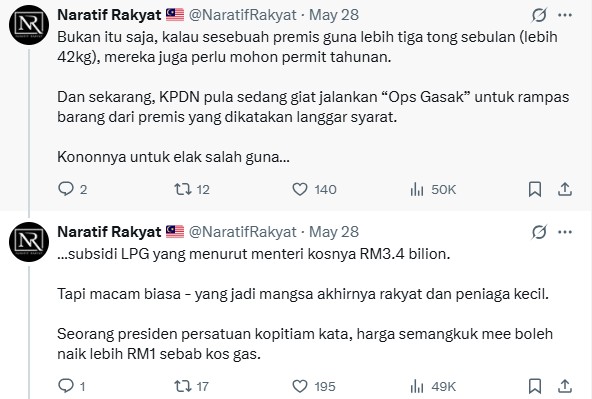
Breaking it down into ringgit and sen, the poster claimed that the move will greatly impact the food industry with common people ultimately paying the price.
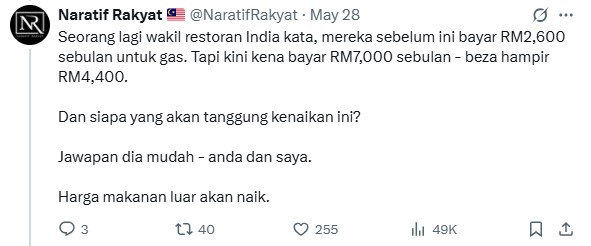
“Another Indian restaurant representative said they previously paid RM2,600/month for gas. But now they have to pay RM7,000/month – a difference of almost RM4,400,” revealed yhe poster.
He went on to admonish the Madani administration for claiming that such a move was necessary to prevent leakages and to rationalise subsidies.

Despite claims by the Madani administration of trillions of ringgit in foreign investment, the rakyat have been subjected to increased taxes and removal of key subsidies.

Justified or not, any subsidy removal is going to be extremely unpopular.
For certain, the Madani government will have legitimate reasons for wanting to take the country away from a subsidised economy model. But it has to recognise that such a move will hit those at the bottom of the food chain worst.
There should be a grace period for businesses to comply and consumers to make the necessary adjustments.
Such sudden implementation and enforcement will do little for its popularity at the polls but if the Madani government wishes to implement any long-term strategies, it may have to re-think this move. – May 30, 2025
Main image credit: Daily Makan/Facebook




